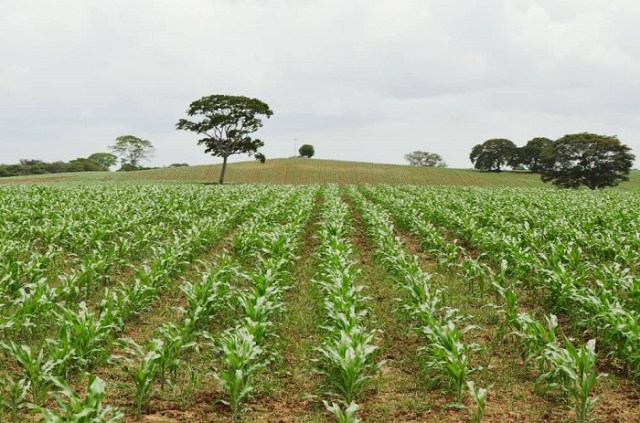
Lack of financing, fuel, machinery, insecurity, smuggling and severe limitations in the technological area are some of the problems faced by the agricultural sector in Venezuela.
By Correspondent lapatilla.com
The President of the Confederation of Associations of Agricultural Producers of Venezuela (Fedeagro), Celso Fantinel, stated that there is a regression of approximately 40 years in agricultural production in the country.
He highlighted that although the sector has been recovering from the 80% drop that occurred in 2017 in some areas, the current production figures are similar to those recorded in the 1980s.
“The 2023 harvests are the harvests from 1986, that is, we are still almost 40 years behind. However, for the third consecutive year production did not fall, but we slowed down as a result of insufficient financing. Right now there is a depletion of diesel reserves and that also influenced the fact that we did not have more expense sowing during the north-summer cycle,” he stated.
Fantinel, who was a speaker at the Agricultural Perspectives 2024 event held in Carabobo State, highlighted that in the market there are supplies, fertilizers, agrochemicals, machinery and vehicles, but there is no financing or credits to acquire them.
Supplies
The President of Fedeagro explained that in 2023, 693,000 tons of white corn were produced in the country, for a total of 66% of the supply of the Venezuelan market; 340,000 tons of yellow corn, which translates into 25% of the needs.
Regarding white rice, 562,000 tons of white rice were produced in the two harvest cycles to cover 64% of the market. This implies an increase, because recently what was produced was only enough to supply about 25%.
He said that it is estimated that more than 4,200,000 tons of sugar cane will be harvested during this harvest cycle, which will supply more than 60% of the market.
Regarding vegetables, Fantinel stated that a recovery was registered. However, he pointed out that the problem is the low purchasing power of Venezuelans and the rising prices of the product in supermarkets or open-air markets.
“We are in a moment where perhaps we are most affected by the purchasing power of Venezuelans. The low purchasing power affects particularly the area of vegetables and fruits, which in the countryside cost up to four or five times less than what a consumer paying for it on the shelf or in the open market and this is caused by all the problems in the distribution chain such as for example: the lack of cold storage due to electrical outages, checkpoints, the diesel issue (lack, deficiency). So the final link, which is the consumer, receives a more expensive product, and we do not want to impact and increase the price to the consumer, but it is the inefficiency of the chain that is doing it,” he explained.
Technological limitations
Fantinel commented that in the technological area the sector is also lagging behind. “Technologically we are very backwards. From being the third country in the technological avant-garde in the 90s, now we are in last place,” he mentioned.
He said that new technologies are very expensive but necessary, so they have made an effort to incorporate these new tools.
“In our Fedeagro associations we already have satellite mapping, we have pages that help us with the climate, we know how much water and humidity there is in the soil. We have also begun to adapt to these new technologies, but without financing it is very difficult to move forward,” he stated.
On the other hand, Fantinel highlighted with respect to the issue of security that effectiveness has been demonstrated with the implementation of joint checkpoints, especially in the border area with Colombia in the states of Táchira, Zulia and Apure, and in Bolívar with Brazil. However, he mentioned that smuggling is nevertheless occurring again.
“Then we asked ourselves: ‘How do they go through so many checkpoints?’ We have to put components that are on the side of national production and that fight smuggling,” he declared to the press.
The president of Fedeagro asserted that if the sector had guaranteed tools, financing, diesel, safety and mechanical equipment, in a period of less than five years the country could be supplied with 100% of the traditional crops grown in Venezuela.

